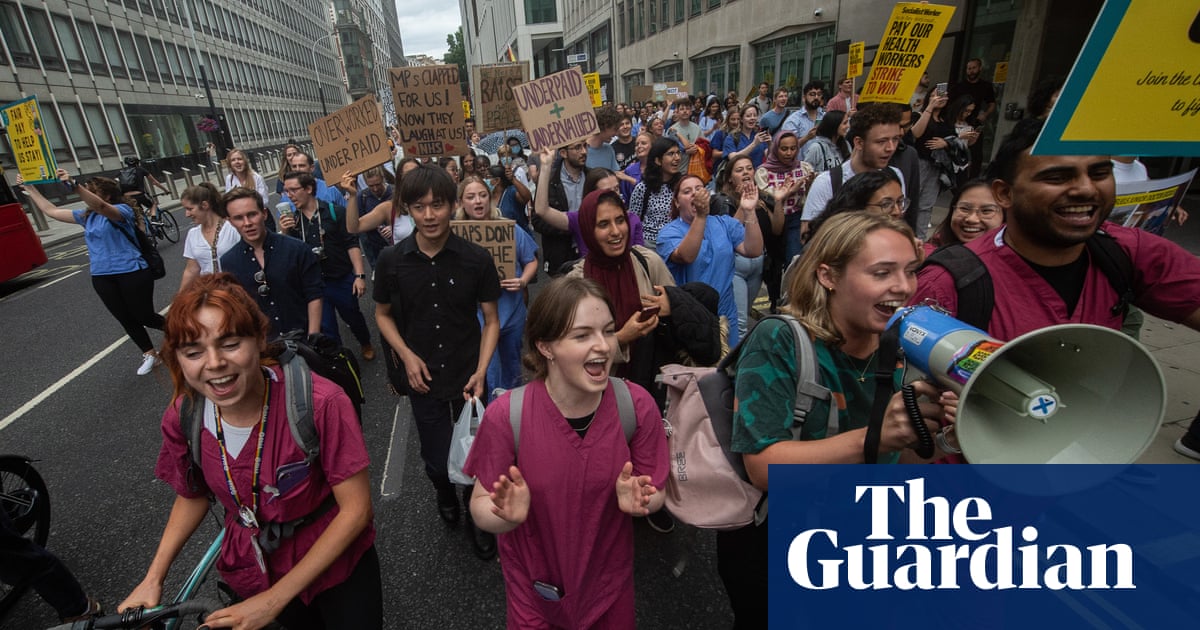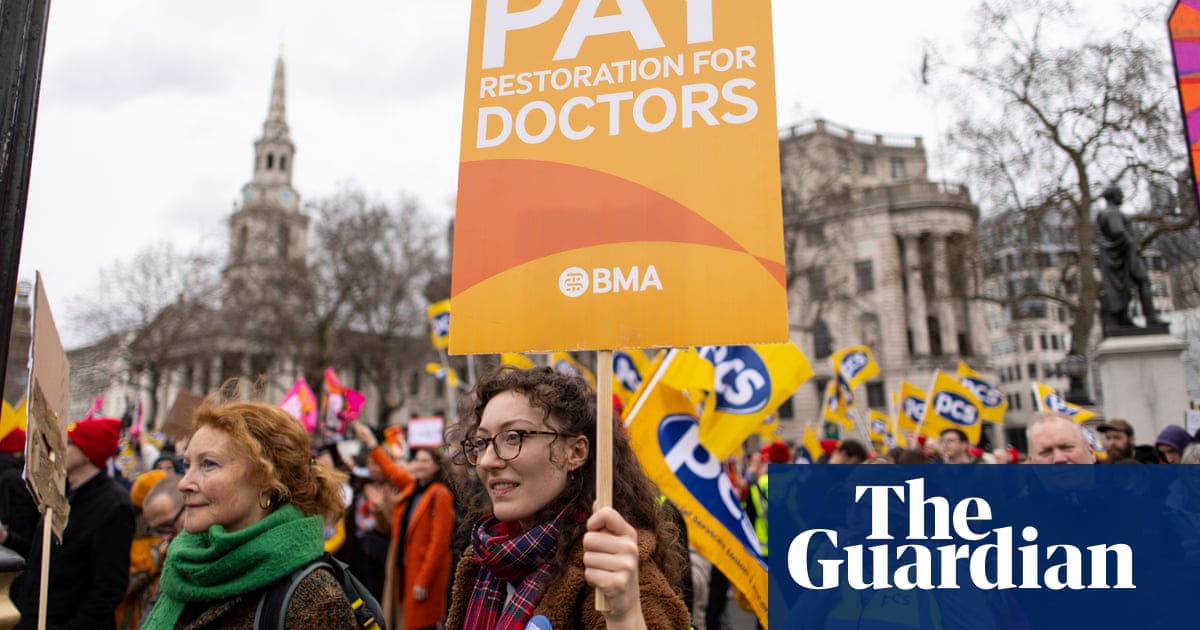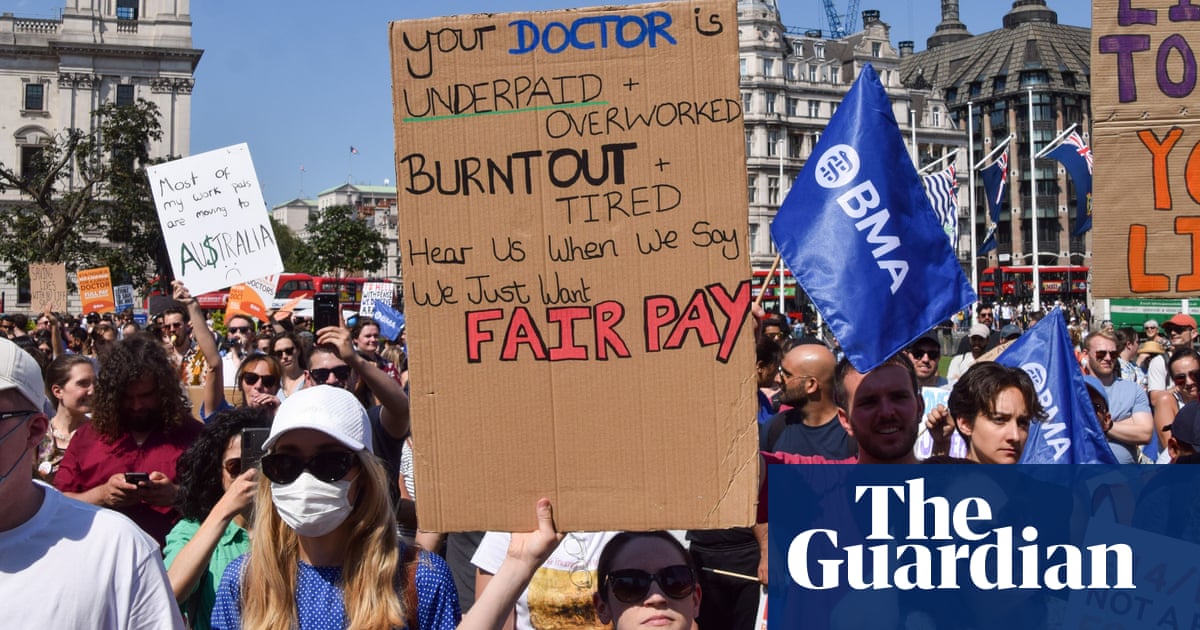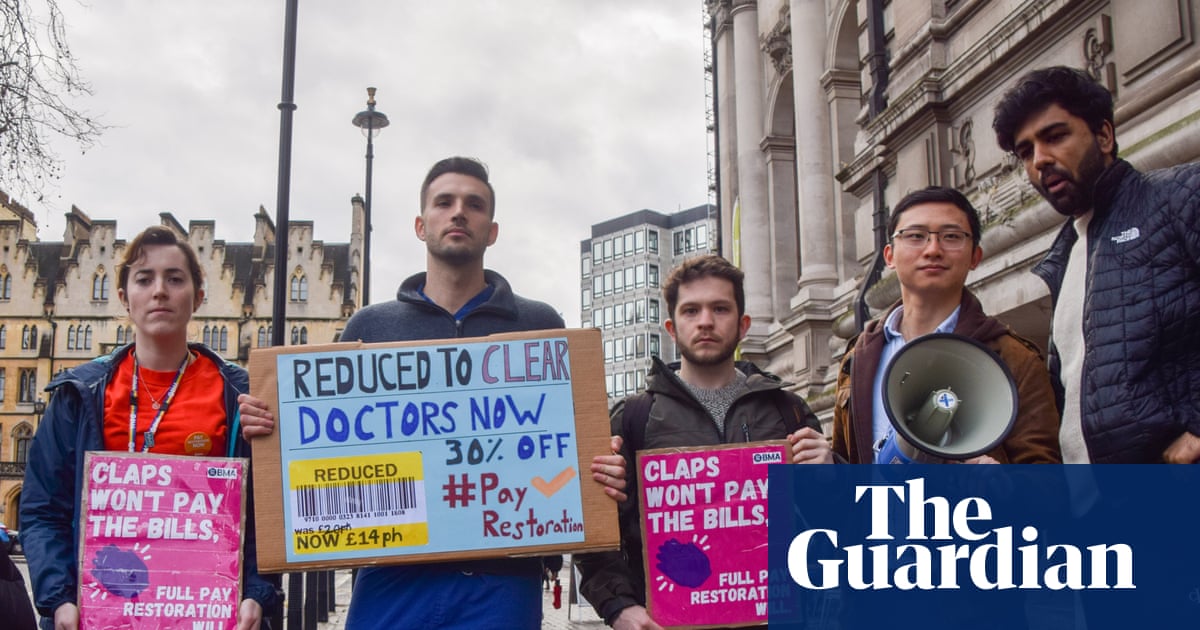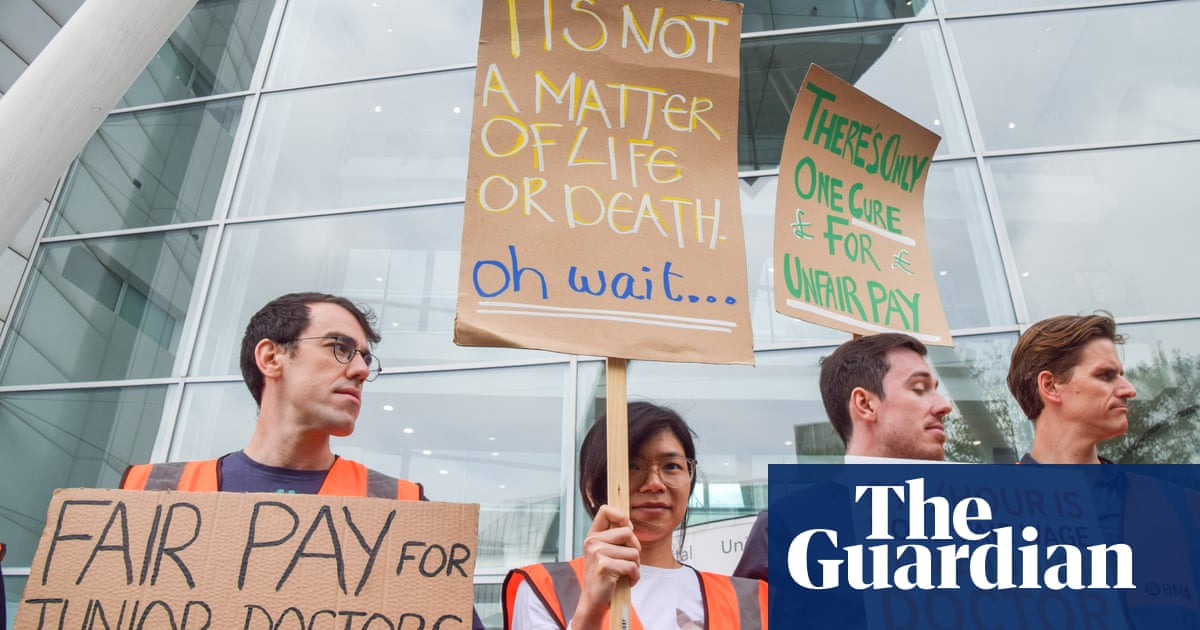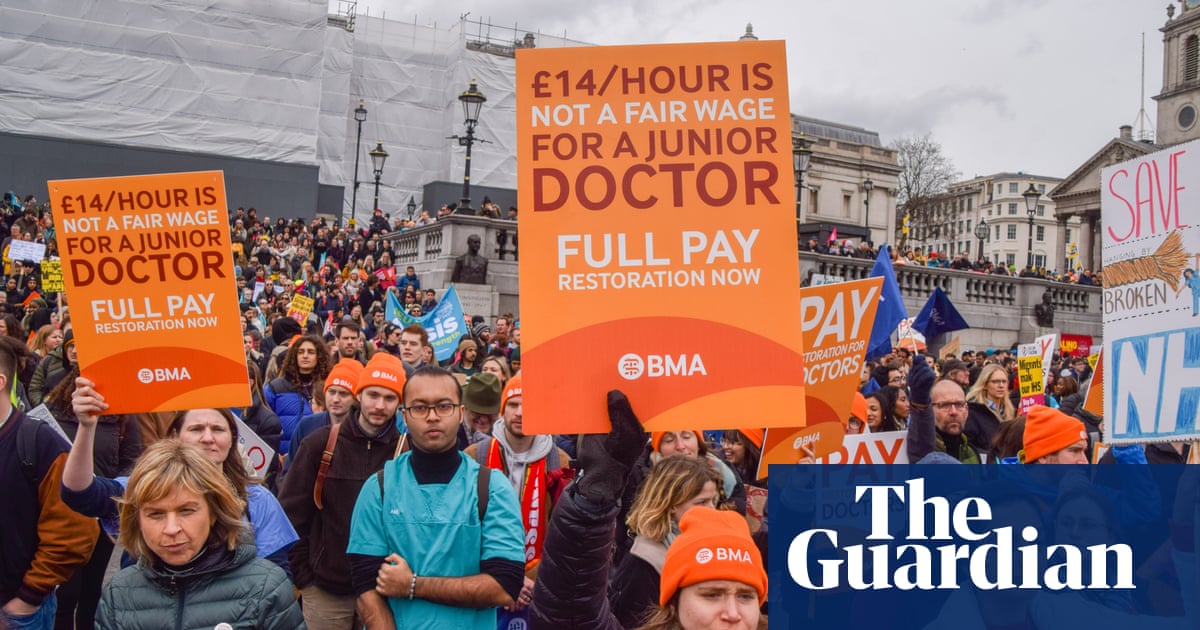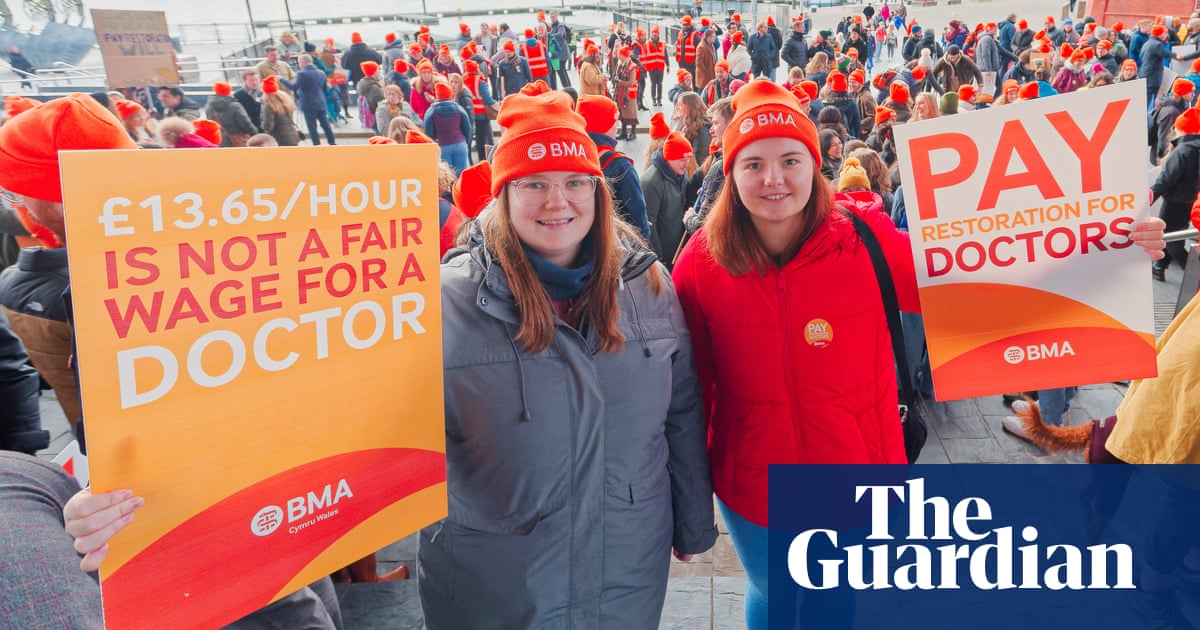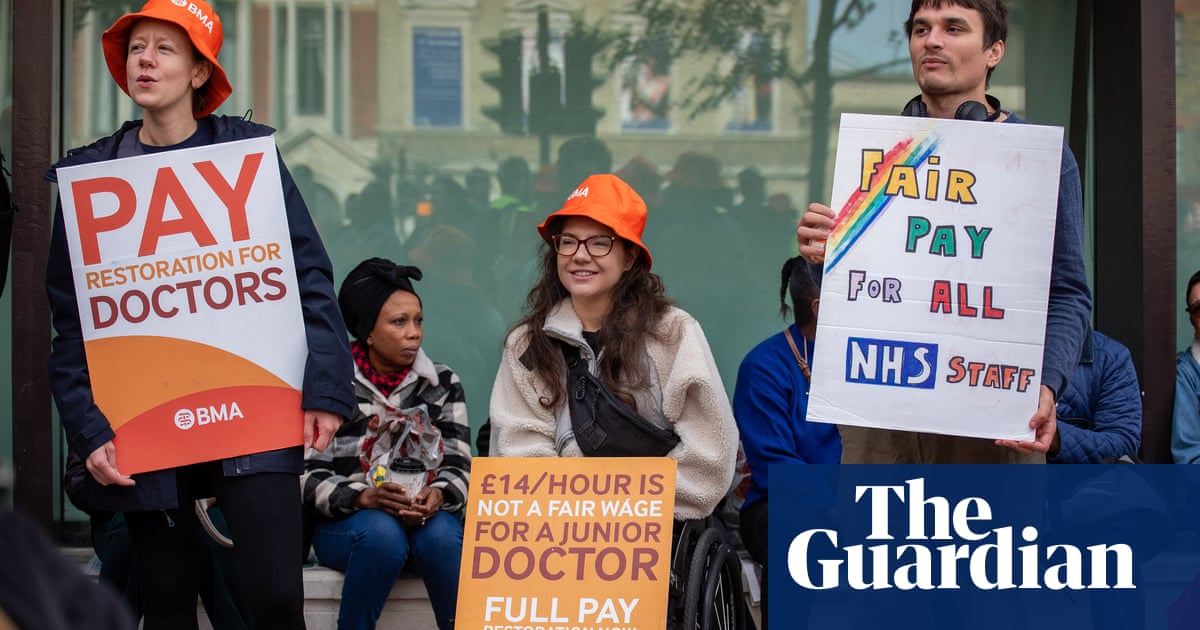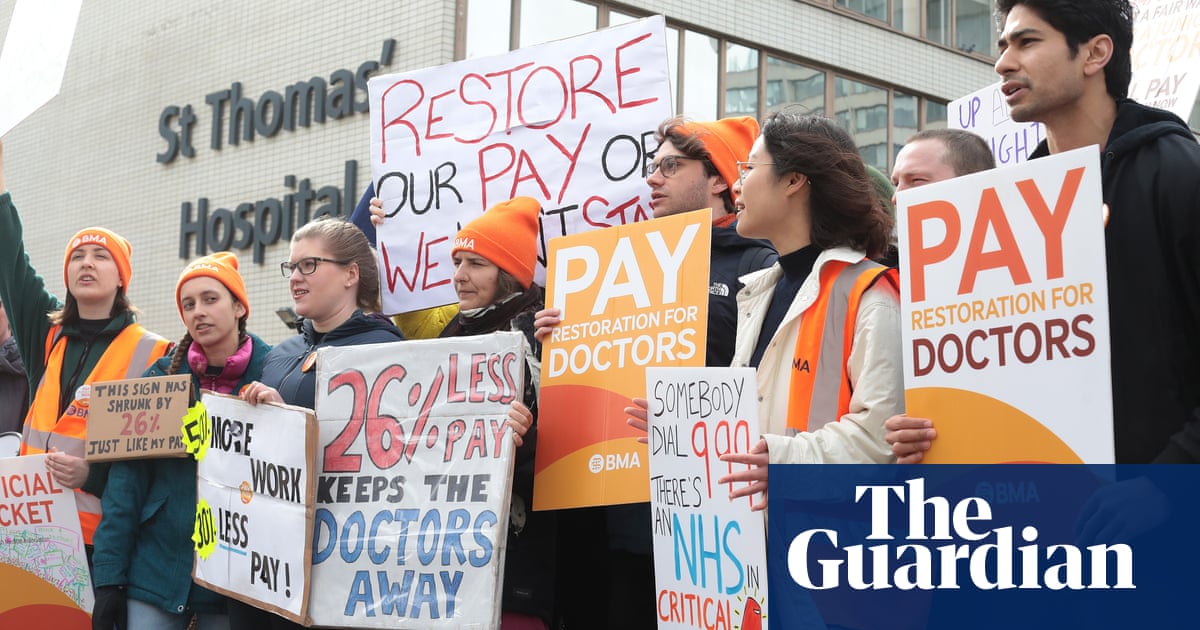
Junior doctors in England will stage a fresh strike for three days next month after negotiations with ministers failed to resolve their pay dispute.
The 72-hour stoppage will run from 7am on Wednesday 14 June to 7am on Saturday 17 June, the British Medical Association announced on Monday evening.
It will be the third strike junior doctors have held as part of a campaign to force ministers to give them a 35% pay rise to make up for what they estimate to be a 26.2% fall in the real-terms value of their salaries since 2008.
The BMA warned that it would keep striking for at least three days every month “throughout the summer” until their legal mandate for industrial action expires. Junior doctors have already staged a three-day walkout in March and a four-day one over Easter last month.
The union blamed the government for next month’s strike and said ministers had only offered junior doctors a “not credible” pay rise of 5%. But Whitehall sources hit back and claimed that at one point during the recent negotiations the BMA proposed a four-year pay deal that would have led to junior doctors getting a 49% increase.
A government spokesperson accused the BMA of sticking to its position of making “unaffordable headline demands on pay” and refusing to compromise.
The NHS in England may soon be faced with strikes by other staff groups too. The Royal College of Nursing’s second ballot of its members, seeking a legal mandate for another six months of stoppages, opens on Tuesday. And the BMA is also balloting hospital consultants to see if they want to join the junior doctors in striking in pursuit of better pay.
Dr Vivek Trivedi and Dr Robert Laurenson, the co-chairs of the BMA’s junior doctors committee, disclosed that they had been talking to the health secretary, Steve Barclay, for the last three weeks in an attempt to avoid a repeat of the two walkouts so far, which have hugely disrupted NHS services.
But they said negotiations became “unproductive” when Barclay refused to accept that junior doctors’ pay has been significantly eroded over time and needs to be restored to 2008 levels. The talks collapsed on Monday after what turned out to be a final meeting between the sides.
Trivedi and Laurenson said they had held three weeks of negotiations with the government since the end of their four-day stoppage last month, which caused huge concern in the NHS.
They said that they had entered the talks “in good faith” and hoped that “we would finally see a real offer on the table that would avoid the need for more industrial action.
“We made proposals showing our willingness to be creative and work with the government on how the reversal of our pay erosion could be achieved. In the end, however, the government would simply not accept the fundamental reality of the pay cuts junior doctors have faced.
“This was made clear when they finally made their pay offer of 5%. Not only is that nowhere near addressing pay erosion over the last 15 years, it would not even have matched inflation this year.”
The government spokesperson said it was “surprising and deeply disappointing” that the BMA had called a further strike while “constructive” talks, including about non-pay issues such as junior doctors no longer having to pay to take exams, were continuing.
“We made a fair and reasonable opening offer, and were in active discussions about both pay and non-pay issues.
“Unfortunately, it seems the BMA is unwilling to move meaningfully away from their unaffordable headline demands on pay.”
The BMA said it planned to meet Barclay again on Wednesday. But Barclay will only engage in further talks if the junior doctors call off their strike, which looks unlikely.




